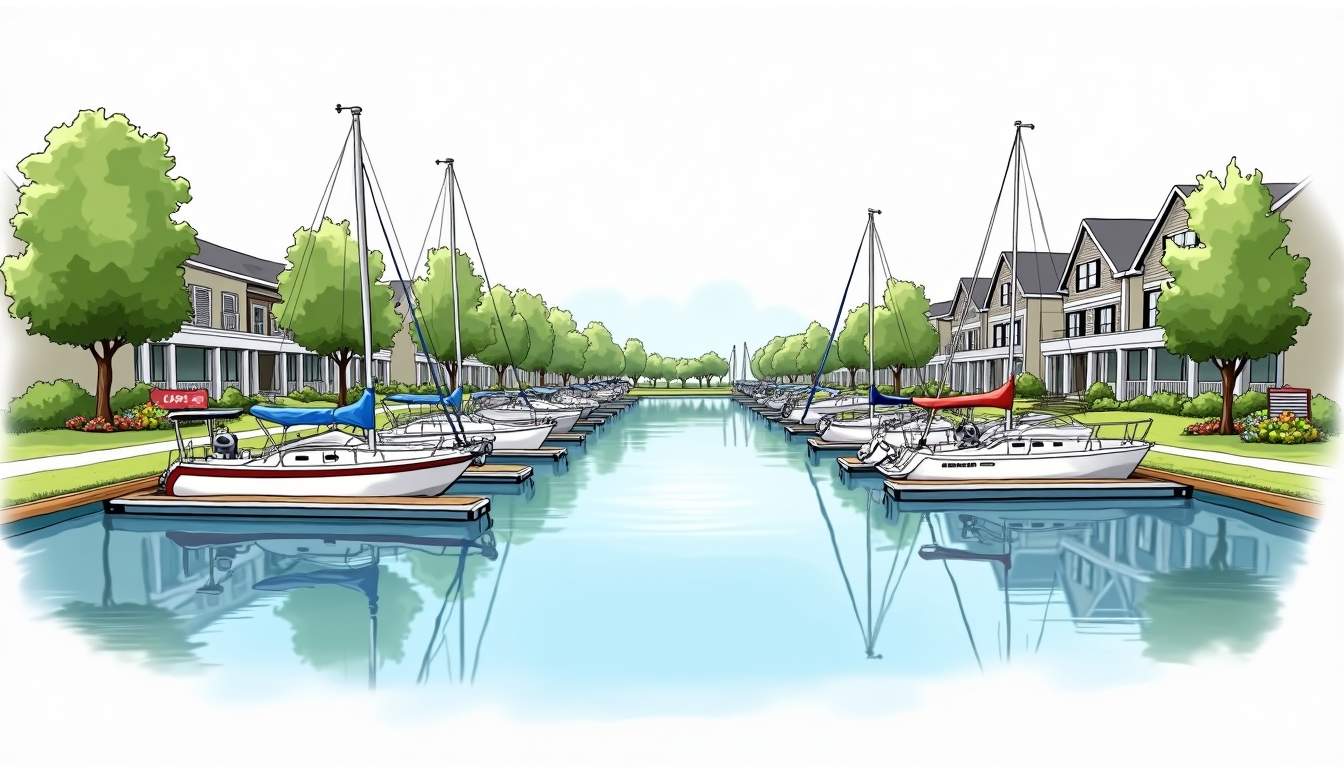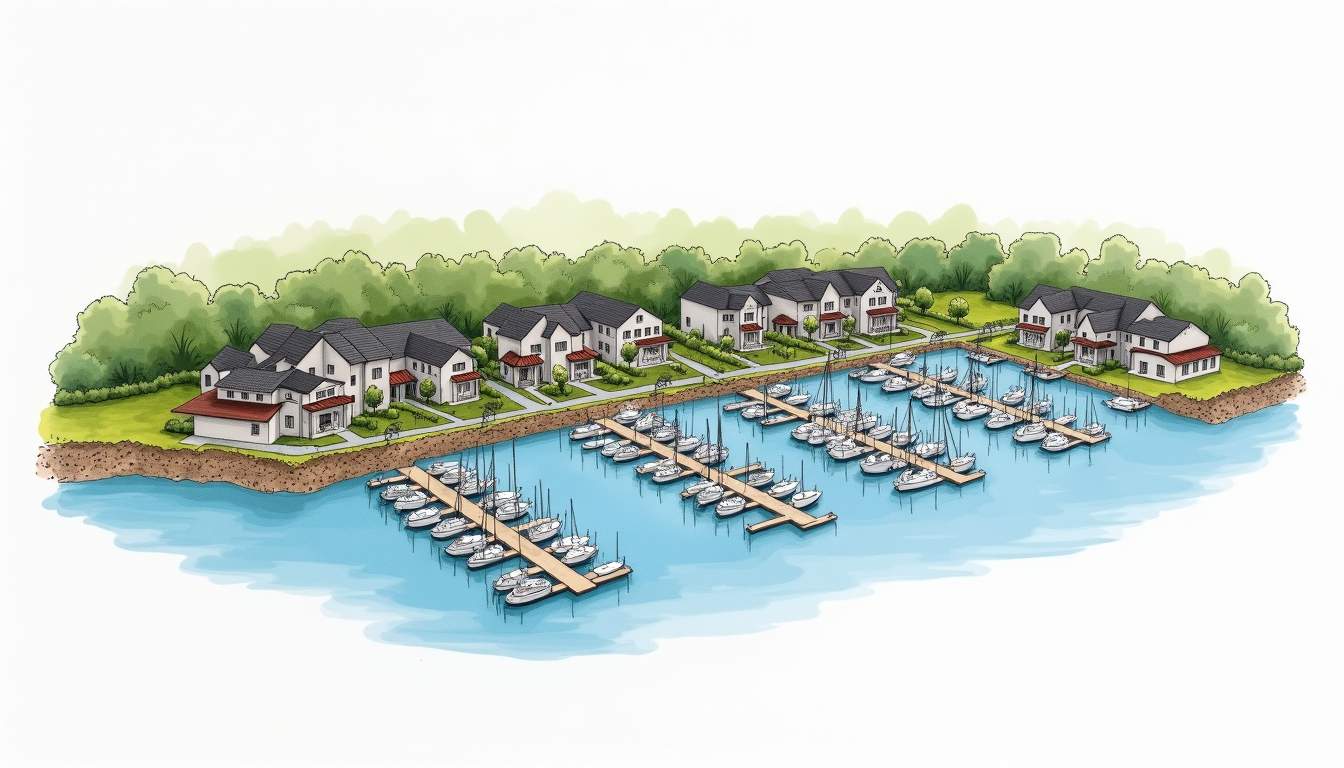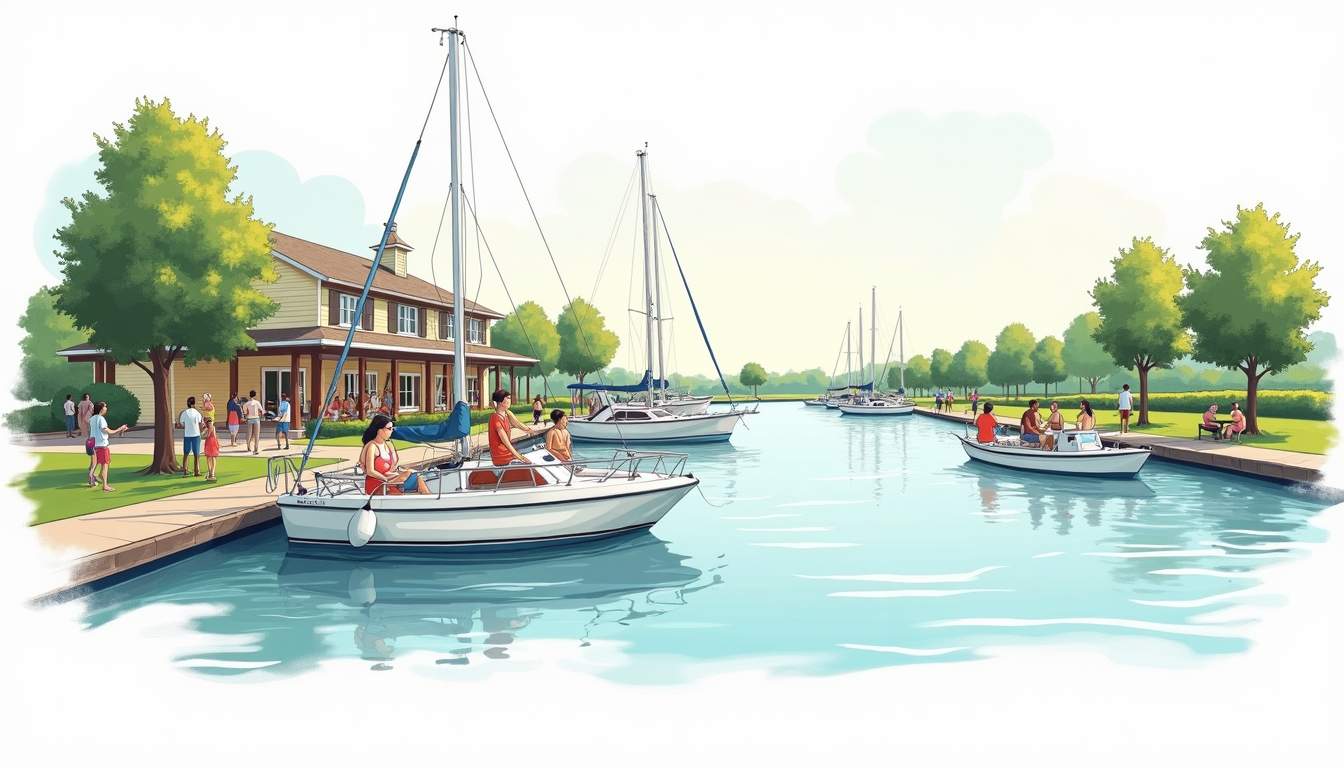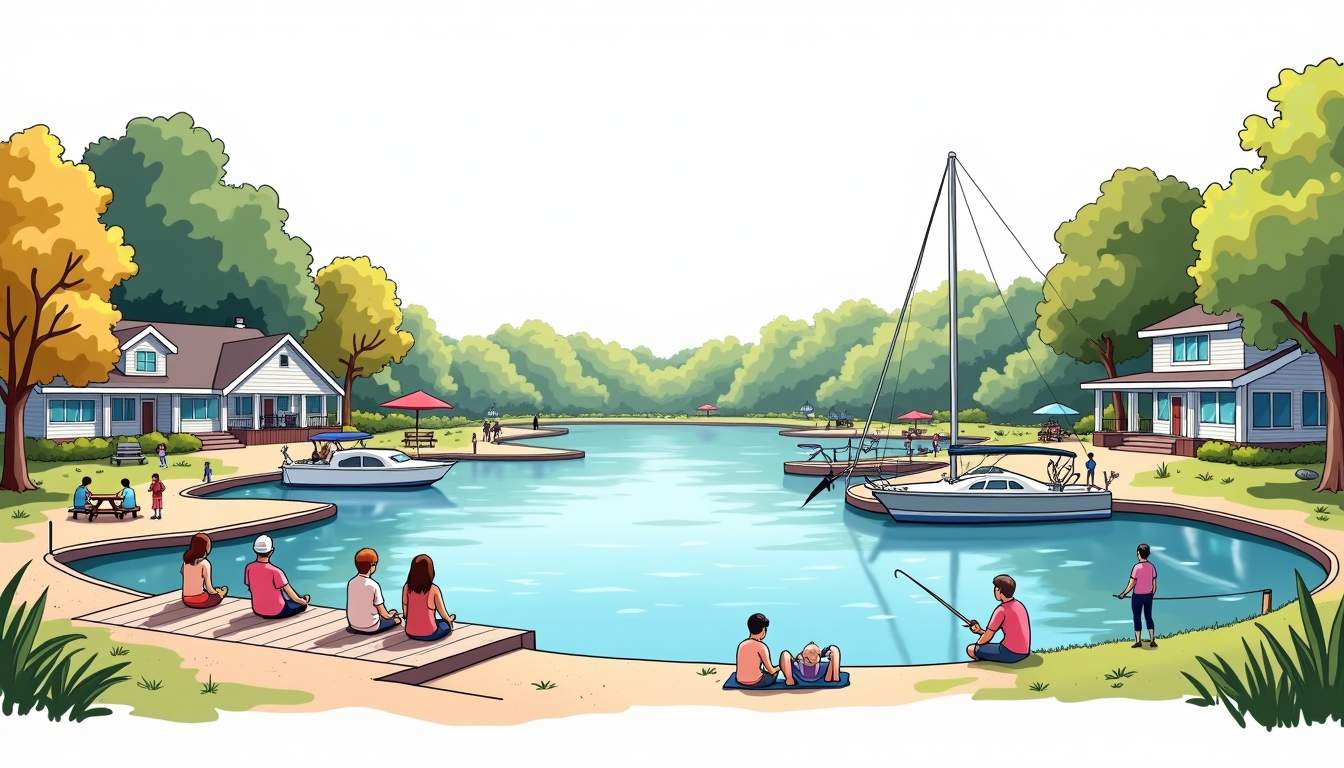
Boating in a private marina community blends the leisurely charm of waterfront living with the structure of shared facilities and community governance. For many boat owners, private marinas offer security, services, and a social environment unavailable at public docks. Understanding the rules, recognizing the benefits, and preparing with practical tips ensures a safer, more enjoyable experience for residents and their guests alike.
Private marina communities vary widely, from small homeowner associations that share a handful of slips to large, professionally managed marinas with dozens of amenities. Typically, these communities are governed by a homeowners association (HOA), condominium association, or marina management company that enforces bylaws, slip lease agreements, and community rules. These documents outline everything from slip assignment and guest policies to maintenance responsibilities and noise restrictions.

Slip ownership models also differ: some marinas offer owned slips, where the slip is a deeded property tied to the unit, while others provide reserved slip leases or waitlists for transient space. Understanding the legal relationship to the slip—whether it is owned outright, leased long-term, or available on a seasonal or transient basis—is essential before purchasing a property or committing to a long-term berth.
Additionally, the physical infrastructure of private marina communities can range from simple floating docks to complex systems featuring fuel stations, boat lifts, and winter storage facilities. This infrastructure is often maintained collectively by the community or managed by professional staff, ensuring that common areas remain in good condition. Some larger communities also provide social amenities such as clubhouses, swimming pools, and waterfront dining options, fostering a strong sense of community among boat owners.
Financial considerations are equally important when evaluating a private marina community. Besides the initial cost of slip ownership or lease, residents typically pay monthly or annual dues that cover maintenance, security, and insurance for shared spaces. These fees can vary significantly based on the level of services and amenities provided. Prospective buyers should carefully review the community’s financial health and reserve funds to anticipate future costs and avoid unexpected expenses.
Rules typically cover safety, environmental protection, behavior, and facilities use. Common expectations include proper securing of vessels, adherence to speed limits within the marina basin, and restrictions on live-aboard arrangements. Many communities require proof of insurance, current registration, and compliance with local boating laws. These requirements exist to protect property, reduce liability, and maintain a clean, enjoyable environment for all residents.
Private marina communities offer a number of benefits that can significantly enhance the boating lifestyle. Enhanced security ranks high on the list: gated access, surveillance cameras, and on-site staff reduce theft and vandalism risks, giving boat owners peace of mind, especially during off-seasons or extended trips. The presence of neighbors who also value their vessels often results in informal mutual oversight.

Another major advantage is convenience. Many private marinas provide on-site fuel docks, pump-out stations, marine supply stores, and maintenance services such as haul-outs and winterizations. Access to amenities like clubhouses, swimming pools, and waterfront parks can make the marina a social hub where families socialize and boating enthusiasts exchange knowledge. The ease of launching and stowing a boat without the hassle of driving to a public ramp is a daily convenience that translates to more time on the water.
Because residents share a close environment and a common interest, private marinas often host social events, regattas, educational workshops, and informal gatherings. These activities create opportunities to learn local waterways, exchange maintenance tips, and build friendships. For families, the marina can become an extension of the neighborhood—a place where children learn water safety and adults find a ready network for assistance during travel or maintenance tasks.
Moreover, private marina communities often foster a sense of pride and stewardship over the shared environment. Many communities organize clean-up days and environmental education sessions, encouraging boaters to participate in preserving local aquatic ecosystems. This proactive approach helps maintain water quality and scenic beauty, benefiting everyone who enjoys the waterways.
In addition, the networking opportunities available through these communities can extend beyond boating. Residents frequently share knowledge about local services, weather patterns, and regional events, enhancing the overall living experience. The camaraderie among members often leads to collaborations on improvements to the marina infrastructure and advocacy for boating interests at local government meetings.
Environmental stewardship is a frequent focus in private marina communities. Rules often require practices that reduce pollutants and protect marine habitats: proper handling of fuels and oils, use of approved boat bottom paints, and responsible waste disposal. Many marinas have pump-out stations to discourage sewage discharge into the water and designated areas for hazardous waste disposal like batteries and oil filters.
Safety protocols are also central. Marinas commonly require life jackets for children and non-swimmers, mandate functioning fire extinguishers on vessels, and enforce dock and gangway weight limits. Emergency response plans—covering scenarios such as fuel spills, fires, or severe weather—should be clearly posted and periodically reviewed with residents. Awareness of these procedures can significantly reduce risk and improve response times when incidents occur.
Beyond community rules, boaters must comply with local, state, and federal regulations related to navigation, wildlife protection, and water quality. Examples include speed restrictions in protected areas, seasonal closures to protect nesting birds, and limits on anchoring in seagrass beds. Failing to follow these rules not only harms ecosystems but can also expose the community to fines and legal liabilities. Private marinas are often proactive in educating members about applicable regulations and may coordinate with conservation groups to support habitat restoration efforts.
Before committing to a private marina community, conduct a thorough evaluation. Visit at different times of day and week to observe noise levels, boat traffic, and neighbor interactions. Inspect common facilities—bathrooms, laundry rooms, fueling stations—and ask about maintenance schedules and reserve funds for long-term repairs. Review the association’s governing documents to understand fees, assessments, and the process for addressing disputes.
When selecting a slip, consider size, location, and exposure. Slips in high-wind or current-prone areas may require heavier-duty mooring hardware and more frequent attention. Finger piers that allow access from both sides may be more convenient for boarding and maintenance, while end slips often provide extra privacy but may be harder to maneuver into for less experienced helmsmen.
Boat maintenance in a private marina environment benefits from advance planning. Seasonal maintenance—antifreeze flushes, battery care, bottom painting—should be scheduled during off-peak times when haul-out facilities are less busy. Coordinate with marina staff for approved contractors and ensure that any work performed on-site meets environmental requirements. Keep an eye on common spaces; reporting loose pilings, frayed lines, or damaged dock hardware can prevent accidents and spread maintenance costs more evenly across the community.
Hosting guests at a private marina requires attention to both formal policies and unwritten etiquette. Many communities demand prior registration of overnight guests and temporary visitor parking passes. Respect for assigned slips is paramount: guests should not use neighboring slips without explicit permission, and boaters should coordinate guest arrivals to avoid congestion during busy weekends or holiday periods.
Etiquette also covers noise levels, pet behavior, and the responsible use of shared amenities. Quiet hours are common, and fireworks or excessive engine revving are usually prohibited. Keeping walkways clear, promptly removing trash, and ensuring that guest dogs are leashed and cleaned up after contribute to a harmonious community environment. Small acts of consideration—like offering help with a tricky tie-up—foster goodwill and make marina life more enjoyable for everyone.
Despite best efforts, disputes can arise over noise, slip boundaries, and unpaid fees. Most private marinas have formal complaint procedures; using these rather than informal confrontations leads to better outcomes. Document concerns in writing, collect any relevant photos or witness statements, and follow the association’s protocols for escalation. Mediation is often a helpful step before legal action, and many communities maintain an impartial committee to review disputes fairly.
Seasonal weather and storm preparedness are vital components of marina living. In hurricane-prone areas, marinas typically have specific protocols for securing vessels: double-braided dock lines, chafe protection, and additional spring lines can reduce the risk of breakaways. Owners should know the marina’s evacuation procedure and whether staff will relocate vessels or if owners are responsible for moving boats to safer harbors.
Off-season care also matters in cold climates. Winterization steps—such as fuel stabilizers, engine fogging, and battery storage—protect mechanical systems from freeze damage. Storing sails, electronics, and sensitive gear in climate-controlled areas, if available, will extend service life and reduce repair costs when the season returns.
Private marina communities offer a unique combination of convenience, security, and social opportunity for boat owners. The experience is shaped by clear rules, responsible behavior, and shared commitment to safety and environmental stewardship. Investing time to understand governance documents, choosing the right slip, and building strong relationships with neighbors and marina staff creates a more enjoyable, sustainable boating lifestyle.

Whether seeking peaceful mornings on the water, easy access to maintenance services, or a vibrant community of like-minded neighbors, boating in a private marina can be deeply rewarding. Adhering to rules, preparing for seasonal and emergency conditions, and practicing courteous marina etiquette helps preserve the value and charm of these waterfront communities for present and future members alike.
Embrace the boating lifestyle within a vibrant private marina community at Tennessee National. Enjoy luxury waterfront living complemented by a Greg Norman Signature Golf Course, waterfront dining, and over 20 exclusive amenities designed for comfort and convenience. Whether you prefer a move-in ready home or a custom build, Tennessee National offers the perfect setting to elevate your boating experience. Schedule a private tour today and start making memories daily in this exceptional resort-style community.